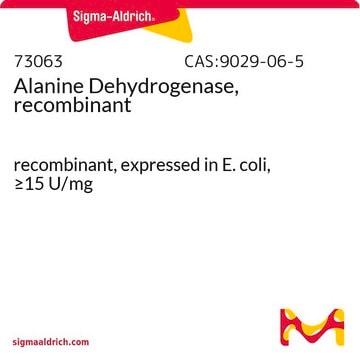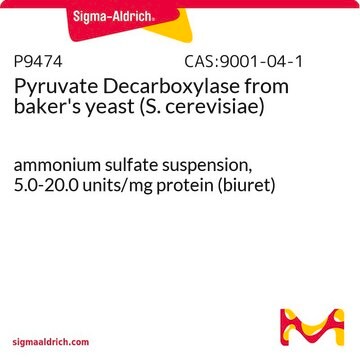A7653
L-Alanine Dehydrogenase from Bacillus subtilis
buffered aqueous glycerol solution, ~30 units/mg protein (Lowry)
Sinónimos:
L-Alanine: NAD+ oxidoreductase (deaminating)
About This Item
Productos recomendados
biological source
Bacillus subtilis
Quality Level
form
buffered aqueous glycerol solution
specific activity
~30 units/mg protein (Lowry)
foreign activity
LDH ~1% (using pyruvate as substrate)
storage temp.
−20°C
¿Está buscando productos similares? Visita Guía de comparación de productos
Application
Biochem/physiol Actions
Unit Definition
Physical form
signalword
Danger
hcodes
pcodes
Hazard Classifications
Resp. Sens. 1
Storage Class
10 - Combustible liquids
wgk_germany
WGK 3
ppe
Eyeshields, Gloves, multi-purpose combination respirator cartridge (US)
Elija entre una de las versiones más recientes:
Certificados de análisis (COA)
¿No ve la versión correcta?
Si necesita una versión concreta, puede buscar un certificado específico por el número de lote.
¿Ya tiene este producto?
Encuentre la documentación para los productos que ha comprado recientemente en la Biblioteca de documentos.
Nuestro equipo de científicos tiene experiencia en todas las áreas de investigación: Ciencias de la vida, Ciencia de los materiales, Síntesis química, Cromatografía, Analítica y muchas otras.
Póngase en contacto con el Servicio técnico








